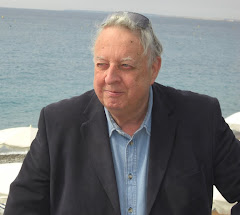The French music
magazine Diapason has published a few volumes of historical
music recordings. I bought the Mozart chamber music box for the
incredible sale price of £12.50 (Presto Classical). For ten
CDs of great music and interesting performances, that is not at all
bad!
The compilers of the
recordings have, of necessity, limited themselves to works out of
copyright (i.e., recorded more than 50 years ago). They also claim to
have deliberately avoided picking recordings easily available
elsewhere to avoid over-duplication. I am happy that the box has
introduced me to music of Mozart that I simply did not know before:
mainly the piano trios, and the piano quartets. Recordings range from
1937 to 1962, with most being in the 1950s, an age that still had the
“old” sound and approach, somewhat different from the young-star
macho performances of chamber music that one often hears today. There
are ten of the sonatas for violin and piano; in truth, here they are
more of interest for the piano parts than for the violinists
(probably how Mozart envisaged things, as well). Five of the ten are
played by Joseph Szigeti who, by the mid 1950s, was over 60
years old and well past his prime. His pianists, mainly Mieczslaw
Horszowski, are impressive and I particularly liked George Szell
in Mozart's K 481; I've never much liked Szell as a conductor, but he
certainly impresses as a Mozart pianist! Missed his vocation. Another
heavily featured pianist is Lili Kraus who plays with Szymon
Goldberg in two of the sonatas, and with Willi Boskovsky and Nikolaus
Hübner in the piano trios. Lili Kraus's playing pleases me
immensely. Szymon Goldberg is recorded far too distantly in the 1930s
and cannot make much impression, but his two sonatas are well worth
hearing to listen to Ms Kraus.
The quartets for piano
and strings are divided up, with the Amadeus Quartet featuring in one
of the two, with Clifford Curzon. The six string quartets dedicated
to Haydn are all given to the Juilliard Quartet (1962); wonderful
performances, recordings and transfers of these six jewels of the
string quartet world. I liked them very much indeed. The string
quintets feature the (augmented) Budapest Quartet, the Griller
Quartet, and the Amadeus Quartet (who also play the quartets K 575
and K 590). The Divertimento K 563 is present in an excellent
transfer of the famous 1941 recording by the trio of Heifetz,
Primrose and Feuermann. A man cannot have too many copies of that
one.
The tenth CD moves on
to Mozart's chamber music with wind instruments, which is not really
my cup of tea. For me, however, the set is well worth it for the
performances of the six “Haydn” quartets, for the five string
quintets … and for the playing of Lili Kraus. There are, of course,
no real liner notes (at this price) and the works are all listed in
French, so you have to work out what si bémol majeur means
(it is B flat major, believe it, or not).
Transfers throughout
are excellent though, like most mono recordings of that era, they
sound best through good loudspeakers rather than through headphones.
The six “Haydn” quartets and three of the five string quintets
are in stereo, however. I was pleasantly surprised at the warm sound
of the 1941 recording of the G minor string quintet K 516 by the
Budapest Quartet (a lovely performance of one of my favourite Mozart
works). The piano quartet K 493 with William Kapell is a live
performance, with applause. I never understand why applause is
thought worth recording and retaining. I almost always regret buying
large multi-CD boxes; it seems a good idea at the time, but after one
pass, the box is shelved for the next couple of decades. Not this
box, however. There are too many good things in it. And not a whiff
of “period performance” in sight, to my great relief. I suspect
that Mozart, a connoisseur of musical instruments, would also be
delighted at the warm Viennese instrumental sounds on these CDs. Mozart loved playing the viola, and he also took to the new clarinet; obviously a lover of warm sound.
